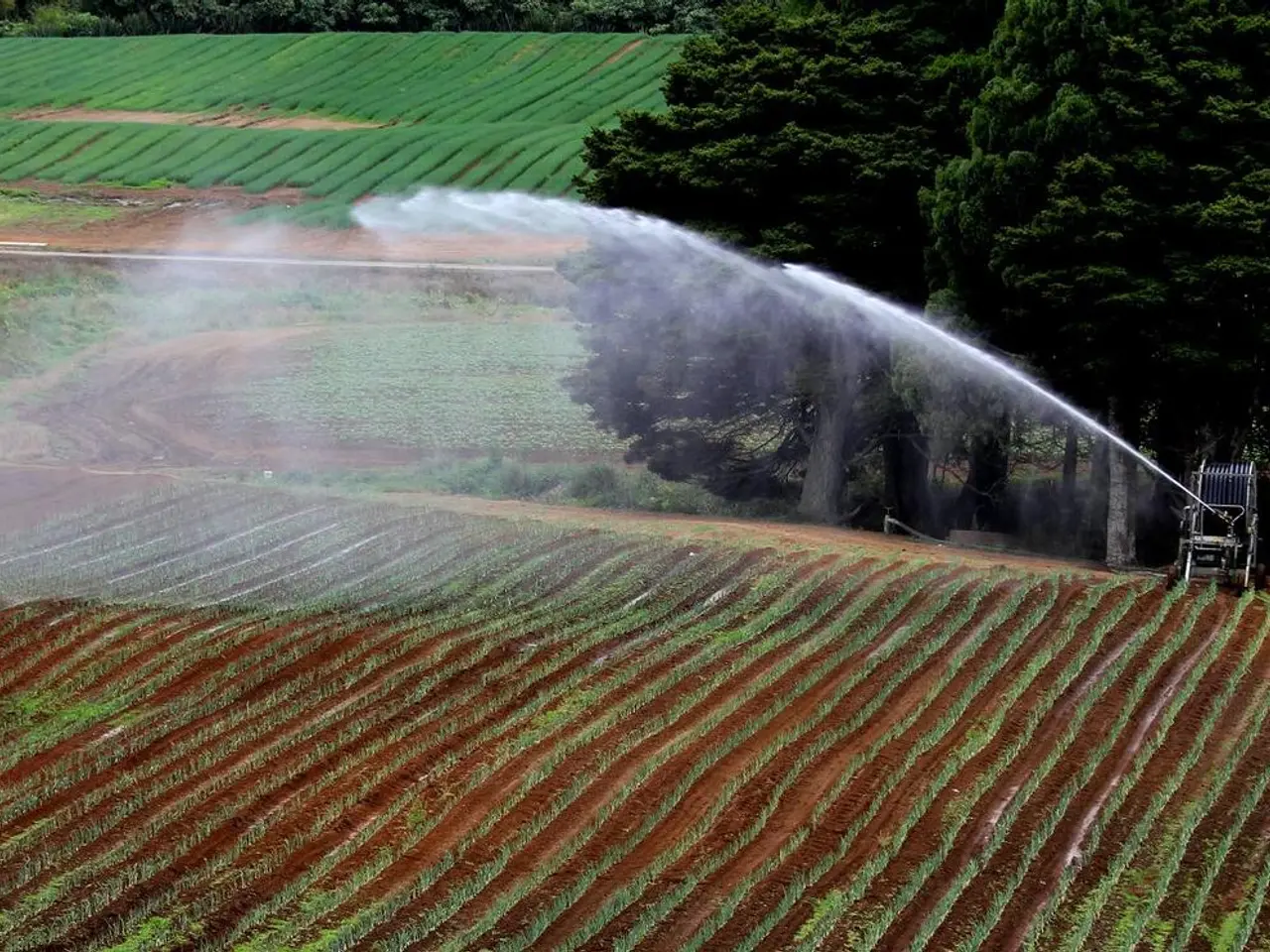City-Dwellers Embrace Agricultural Lifestyle in Pursuit of Rural Sustainability
In the heart of India's IT capital, Bengaluru, a collaborative movement is taking shape. Tech professionals are joining forces with farming collectives to promote sustainable living and agriculture, addressing pressing environmental issues such as climate change, water scarcity, and plastic pollution.
One such initiative is the Government's creation of Farmer Producer Organizations (FPOs), designed to provide farmers with technology, financial support, and access to fair price markets for their produce. These organizations now focus on teaching practices like using biochar to enrich the soil, a method that reduces carbon emissions by preventing agricultural residues from being burned.
Shannon Olsson, the director of the Echo Network, supports urban farming and farming collectives for promoting environmental responsibility and accountability. Olsson emphasizes the importance of eating locally to reduce food miles and cut greenhouse gas emissions.
Venkatachalam Krishnan, one of the founders of Vanam Farms, was inspired to start farming after realizing the benefits of trekking and spending time in nature. Today, Vanam Farms, an 8.5-acre farm in Belalam village, grows vegetables like beans and cabbage using solar energy, rainwater, and restorative farming methods.
The Tamarind Valley Collective (TVC), founded by Varun Pandey and Yathesh Kumar, brings together tech expertise and farming know-how under the label WeCommunities. TVC, located in Thaggatti, employs at least four families and has fostered a close relationship with local villagers. The long-term vision for TVC is to grow a regenerative food forest that meets most of its food needs and relies on harvested water for irrigation.
Efforts to promote sustainable agriculture extend beyond the farms. Projects like Earth5R’s Ulsoor Lake Restoration Program combine lake rejuvenation with regenerative farming techniques like setting up floating wetlands and peripheral plantations using organic mulch, which improve water quality and soil health around the lake area.
Urban tech professionals also support sustainable farming through Corporate Social Responsibility (CSR) initiatives that fund organic training, water-efficient irrigation, digital agriculture tools, and infrastructure for FPOs. Tech-driven digital platforms such as Khetibuddy and Farmonaut provide farmers with weather alerts, soil analytics, and crop management support, reducing dependence on chemical inputs and middlemen while increasing yields sustainably.
Investments in farmland near Bengaluru are increasingly incentivized by government subsidies and carbon credit programs that encourage water conservation, organic farming, and carbon sequestration practices. This creates financial and ecological incentives for urban investors and tech professionals to participate in sustainable agriculture as part of a broader ecosystem.
This collaborative approach between Bengaluru’s tech professionals and farming collectives exemplifies an integrated model to tackle climate change, water scarcity, and plastic pollution through sustainable living and agriculture. As India faces the challenge of a rapidly rising high-carbon lifestyle, becoming the world's third-largest greenhouse gas emitter, these efforts offer a promising path forward.
References: 1. Earth5R 2. Khetibuddy 3. Farmonaut 4. WeCommunities
- The collaborative movement in Bengaluru includes tech professionals partnering with farming collectives to spotlight sustainable living, addressing issues like climate change and plastic pollution.
- One of the initatives is the Government's creation of Farmer Producer Organizations (FPOs), offering farmers technology, financial support, and access to fair markets.
- Shannon Olsson, Echo Network's director, advocates for urban farming and collectives, stressing the importance of local eating to reduce food miles and greenhouse gas emissions.
- Venkatachalam Krishnan, who founded Vanam Farms, was motivated by appreciation for nature and uses solar energy, rainwater, and restorative methods to grow vegetables sustainably.
- The Tamarind Valley Collective (TVC) brings together tech expertise and farming know-how, aiming to grow a regenerative food forest that meets most of its food needs.
- Projects like Earth5R’s Ulsoor Lake Restoration Program incorporate lake rejuvenation with organic farming techniques, enhancing water quality and soil health.
- Urban tech professionals support sustainable farming through CSR initiatives funding organic training, digital agriculture tools, and infrastructure for FPOs.
- Tech-driven digital platforms like Khetibuddy and Farmonaut offer farmers weather alerts, soil analytics, and crop management support, reducing dependence on chemical inputs and middlemen while boosting yields sustainably.





